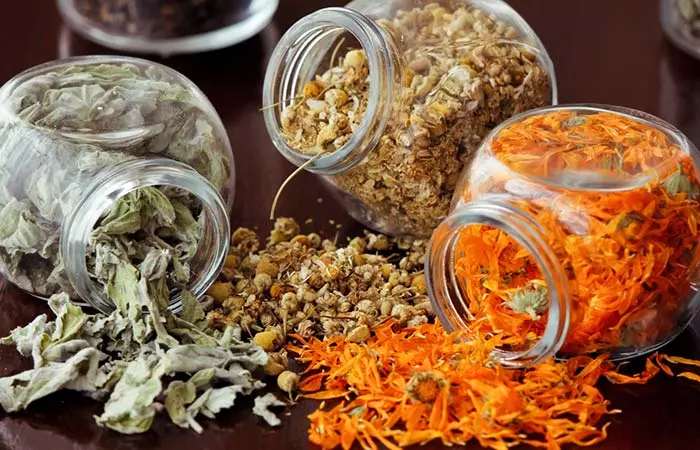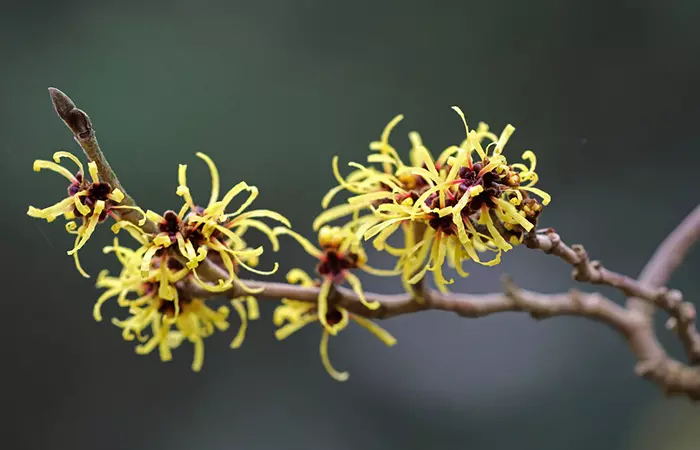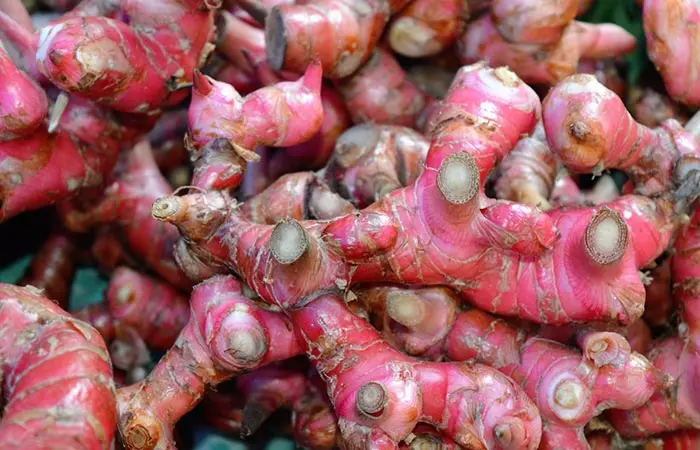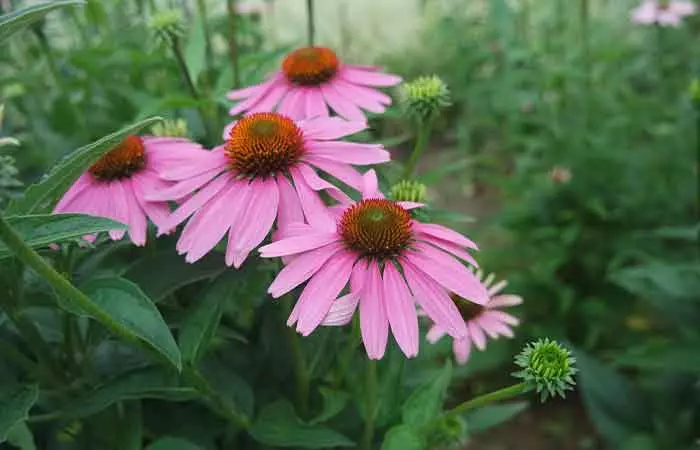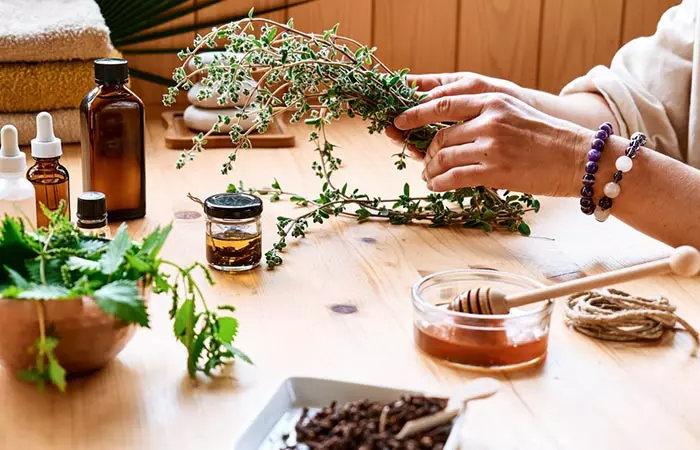Several herbs may help reduce the inflammation and pain associated with acne and promote healing. However, they may not give quick results like prescription medicines. If you wish to try them, we have a list of herbs that may work for acne. Scroll down to learn how they may work, their risks, and DIY recipes to use them.
Herbs For Acne: Do They Work?
Yes. Herbs can help reduce inflammation and kill acne-causing bacteria to improve your condition. While they may not be potent on severe cystic or hormonal acne, herbs can definitely heal mild to moderate acne when applied topically. Nikhil, a blogger, wrote about facing acne in his forties. He added a detailed recipe for an herbal paste to help combat acne and added, “I find this paste very effective (since I still suffer from acne) in controlling the acne and mitigating and in most instances preventing the scarring (i).” Most of these herbs have antibacterial and anti-inflammatory properties that can also maintain your skin’s overall health. However, always do a patch test before using them to avoid allergic reactions. Let’s take a look at the common herbs you can use to heal acne.
Popular Herbs That Can Help Manage Acne
1. Neem
Neem or Azadirachta indica is popularly used in Ayurveda and is considered “sarvaroganivarini” (that which keeps all diseases at bay). This herb is effective against acne-causing bacteria like P. acnes and S. aureus (1). It has anti-inflammatory properties that can reduce redness and swelling associated with acne, and its antioxidant properties help maintain overall skin health.
2. Witch Hazel
Witch hazel or Hamamelis virginiana is known for its astringent and anti-inflammatory properties. It contains tannins, polyphenolic biomolecules that have anti-acne and antiseptic effects (2). Tannins are also anti-inflammatory. That explains why witch hazel is a popular ingredient in anti-acne skin care products.
3. Lavender
Lavender is popularly used in aromatherapy for its de-stressing effects. However, the extracts of this fragrant herb can inhibit P. acnes bacteria. Lavender essential oil can help in acne prevention and management as it has anti-inflammatory properties. It is more effective in improving early acne (comedones), minimizing the size of pores, and regulating sebum secretion (3).
4. Red Ginger
Red ginger is commonly used as an antibacterial agent. A study evaluated the efficacy of an acne lotion formulated with 7.5% red ginger essential oil. It found that red ginger has antibacterial effects against P.acnes and S. epidermis and can control acne inflammation (4).
5. Chamomile
German chamomile (Matricaria chamomilla) has anti-inflammatory properties. A study found it to be effective against P. acnes bacteria and suitable for use in anti-acne formulations (5). You can use these herbs or their extracts (like essential oils) in DIY recipes for acne management. Here are a few recipes that you can try at home.
6. Burdock Root
Burdock root has anti-inflammatory and antibacterial properties that help reduce swelling, redness, and acne. Its topical application also helps to fight eczema and other skin infections (6). You can use burdock root by boiling it on a stove for 15 minutes. Let it cool down and transfer the mixture into a small bowl. Now apply the mixture all over your face using a cotton pad. Rinse off with water after it dries on your face.
7. Echinacea
Echinacea is a plant native to America and is another ingredient known for its acne-fighting properties. It has anti-inflammatory and antimicrobial properties that help to lower inflammation and redness and soothe the skin. Further, it can help to heal the skin, repair skin barriers, boost skin hydration, and leave you with youthful-looking skin (7), (8).
How To Use Herbs For Acne: DIY Remedies
1. Neem And Besan Face Mask
You Will Need
1 tablespoon of besan 1 teaspoon of powdered neem 2 tablespoons of yogurt
How To Use
2. Witch Hazel Toner
You Will Need
4 tablespoons of witch hazel solution 2 tablespoons of aloe vera gel A few drops of lemon essential oil (optional) Cotton pad (for application)
How To Use
3. Lavender Essential Oil Spot Treatment
You Will Need
16 drops of lavender oil 8 tablespoons of carrier oil (use avocado, sweet almond, jojoba, or olive oils) Cotton ball (for application)
How To Use
4. Red Ginger And Turmeric Face Mask
You Will Need
½ knob of red ginger 1 teaspoon of turmeric
Or
2-3 drops of red ginger essential oil 1 tablespoon of any carrier oil A pinch of turmeric powder
How To Use Alternatively,
5. Chamomile Facial Mist
You Will Need
150 ml chamomile tea 5 tablespoons of rose water (hydrosol) Spray bottle
How To Use These are easy, right? However, before you try any of these recipes, remember that herbal or natural never means safe. There are a few associated risks you should be aware of. Find out in the next section.
Risks That Come With Using Herbs For Acne
A side effect associated with herbal remedies is allergic reactions, especially when using essential oils for acne. However, it is not common. If you are allergic to any of the ingredients, you may experience:
Redness Itchiness Flaking Burning or tingling sensations Rashes Hives
Essential oils may also cause sensitivity and make your skin vulnerable to photodamage. Hence, always use essential oils at night, just to avoid sun exposure. If you are going out, apply sunscreen to lower the risk of sunburn. Which herb makes skin glow? Turmeric is a medicinal herb touted for its medicinal properties. It can provide glow and luster to the skin (9). What herb removes dark spots? Anecdotal evidence suggests that chamomile works great to remove dark spots on the face. This herb helps prevent the growth of acne-causing bacteria and offers your skin a radiant glow. However, limited studies are available. What herb hydrates skin? Herbs like calendula, fennel, chamomile, aloe vera, and horsetail may help hydrate the skin. What herbs tighten skin? Comfrey, witch hazel, aloe vera, and turmeric may help tighten the skin. Which herb is best for oily skin? Peppermint is considered a safe and effective herb for oily skin.
Check out the video and explore the effective use of this herbal remedy for acne with expert tips to incorporate them wisely into your skin care routine. Learn when to use, and how to store this solution. (i) My experience with acne. https://nikhilmani1977.wordpress.com/2020/07/12/herbal-remedy-for-acne/
